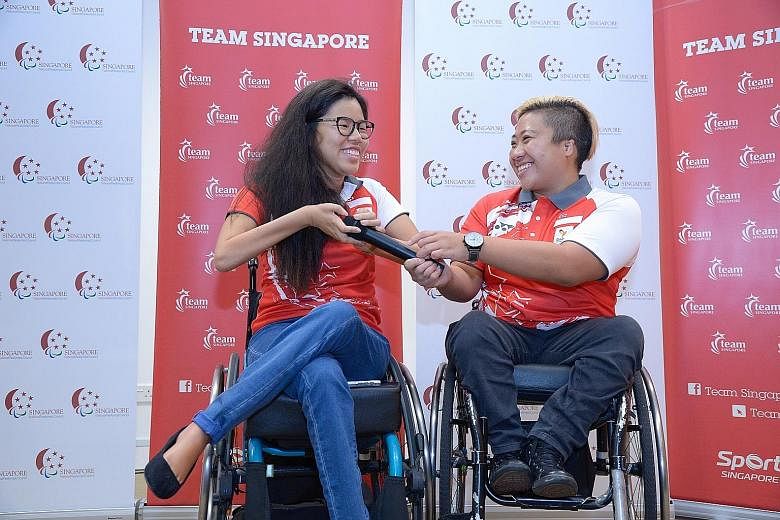After four-time Paralympic swimmer Theresa Goh snagged her first medal at this year's Games in Rio, a photo of her sobbing into the shoulder of teammate Yip Pin Xiu in joy, posted on Yip's Instagram, became a hit online.
But the accompanying caption led to some misunderstanding.
Yip, writing about Goh, had said: "You are now a Paralympic medallist after 17 years of training and perseverance. Nobody knows our journey like us and I am so incredibly proud of you."
While many were inspired by the 24-year-old's heartfelt words, some misinterpreted them.
"People assumed I was talking about the struggles of being a person with a physical disability. But it was about the struggles of being an athlete," said Yip.
Goh, 29, had lost her motivation and even considered retirement after missing a medal in the 2008 Beijing Paralympics in her pet event, the 100m breaststroke SB4.
But the fire in her returned and she won a bronze medal in the 100m at the Games in September. Goh and Yip produced Singapore's best performance at the Paralympics, with Yip winning two gold medals and setting two world records. Their win generated a heated debate, with many saying the cash rewards for athletes with disabilities and able-bodied athletes should be the same.
Joseph Schooling's gold medal win bagged him $1 million while Yip will get $200,000 for each of her medals and Goh, $50,000.
"When people say that it's just about money, it actually says a lot more about how you regard us as human beings. You're saying that you don't value (para-sports) as much. It's not just about how much (we) deserve, but also how much they value us," said Goh.
Although they are proud to represent people with disabilities, they do not want to be defined by their disabilities. Yip has muscular dystrophy, which gradually causes her muscles to lose their ability to function. Goh has spina bifida, which has left her paralysed from the waist down.
"We are not angry (about the inequality), but are just working towards the mindset of a more inclusive society," said Yip. Goh added: "We are athletes with disability, but we are also athletes."
Following the Paralympics, Minister for Culture, Community and Youth Grace Fu encouraged both the Singapore National Olympic Council (SNOC) and the Singapore National Paralympic Council (SNPC) to review the reward schemes for athletes, urging "more corporations to step forward to support SNOC and SNPC on the awards".
Goh and Yip hope to advocate for equality through their achievements.
"Many people think that the 'para' in Paralympics stands for 'paralysed' or 'paraplegic'. But its actual meaning is that the Paralympics are parallel games to the Olympics," said Yip.


